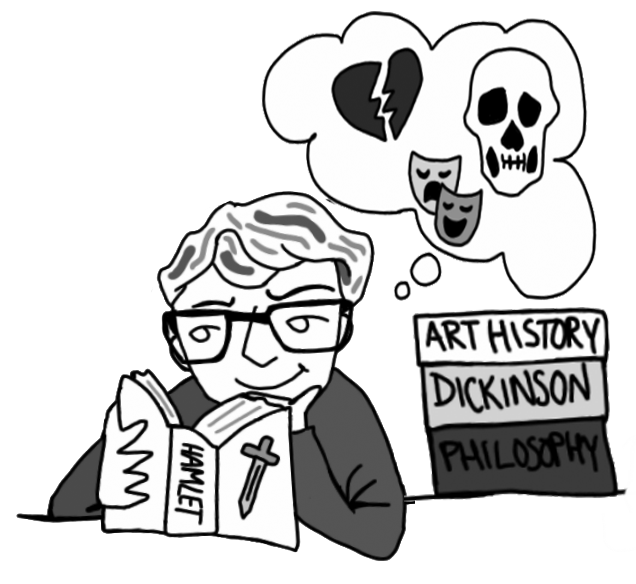

With all this preparation for the future, it is only fair for us to evaluate what we want it to look like, and a huge part of that evaluation is what we select as our major.
For those who do not know, a major is a field in which one specializes during college, usually with their future career in mind. Many students I know plan for it to be a STEM subject.
And there is nothing wrong with this. Many STEM courses are rigorous and stimulating. They have a palpable real world application, and advancement in these subjects advances society as a whole.
I do, however, have something against the notions surrounding STEM’s counterbalance, subjects involving the arts, history and language, collectively known as the humanities. I vehemently disagree with the idea that the humanities are unimportant in the context of academics and society.
Before I continue, I should mention that I plan to be an English major, and that this subject is quite personal for me. I have told many people about my plans, and they look at me quizzically, with internal reactions ranging from “Well that’s interesting” to “What a shame.”
Those who are more brazen ask, “What does one do with an English major?” It’s a question derived from the more innate question of “Why value the learning of thinking over learning of doing?”
My personal experience is hardly an anomaly. The National Center for Education Statistics found that, since 2009, the amount of STEM major graduates increased by 43 percent, whereas the amount of humanities major graduates decreased by 0.4 percent.
According to Pew, when advising high schoolers on their future, 34 percent of American adults recommend to, “pursue a career in a STEM field.” The humanities were scantily mentioned, delegated to the 4 percent of responses that comprised “other.”
To resist exhorting it in a meaningless, flowery way, I will be blunt: the humanities make people think in different ways. All the different contexts and filters revealed in humanistic studies make narrow mindedness more difficult.
There are always bigots and plenty of bigots studied humanities, but in the end, the humanities have a far larger potential to unite humanity than they do to divide it. While global unity is an incredibly lofty goal, it ought to be strived for nonetheless, and it cannot be achieved with science alone.
Out of fear for saying something corny like, “Those who forget the past are doomed to repeat it,” I will leave explaining the importance of studying history to Stanford professor Jim Campbell.
In a lecture on teaching humanities in a modern era, he said, “In understanding how people in the past have made their own worlds, you gain some sense of your historicity … when you realize that the way the world is is not the only way the world can be, you also begin to develop some sense of your own capacity to act in that world, to live creatively in that world, and to change that world.”
Humanities help us understand unquantifiable aspects of the human experience. By fostering a different kind of creativity, they scratch an intellectual itch unscratched by STEM.
I do not wish to advocate for the abandonment of STEM or the prioritization of the humanities, but rather for a balance. It is just as socially irresponsible for schools to produce students who cannot write as it is for them to produce students who cannot count. A statistic alone lacks impact, and a story ungrounded in reality or a greater truth is an ungratifying abstraction.
Humans must be thinkers and doers. Even if I was not able to convince you to be the pinnacle of balance and dual major in computer science and American history, I hope you’ll consider embracing duality to some extent, whether it’s taking that kooky-sounding gender studies class or even just picking up a book.



